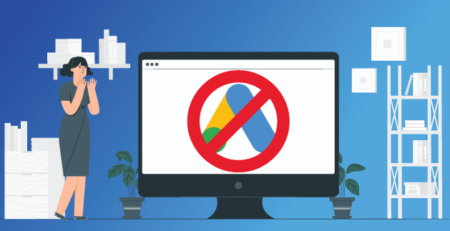SEO Myths Debunked: What Really Works in 2024
Myth: Keywords Are All That Matter
For a long time, keywords were the foundation of most SEO strategies. The thinking was simple: more keywords, better rankings. However, the SEO landscape has changed significantly. While keywords remain important, they are not the only factor influencing your website’s ranking. Search engines have become much more sophisticated, with algorithms focusing on user intent and content relevance. These advanced algorithms can understand the context behind search queries, making keyword stuffing less effective and potentially harmful. In 2024, focusing solely on keyword density can damage your site’s SEO performance.
What Works: Instead of fixating on keywords, prioritize creating high-quality, relevant content that genuinely answers users’ questions. Use keywords naturally within your content, ensuring they align with the user’s search intent. This approach not only improves your content’s relevance but also enhances user experience, which is a key ranking factor. Integrating keywords thoughtfully, rather than forcing them, leads to better engagement and ultimately, better rankings.
Myth: More Backlinks Equals Better Rankings
Another common SEO myth is that the sheer number of backlinks determines a website’s ranking. The assumption here is that more links automatically lead to better rankings. While backlinks remain a crucial ranking factor, their quality now matters much more than their quantity. Search engines have become adept at identifying spammy or irrelevant links. As a result, websites with a few high-quality, authoritative backlinks will outperform those with numerous low-quality links. In 2024, indiscriminately acquiring backlinks can do more harm than good.
What Works: Focus on earning backlinks from reputable sites within your industry. Engage in guest blogging, form strategic partnerships, and invest in content marketing to acquire valuable links. These efforts not only enhance your SEO but also establish your brand’s authority and credibility. Quality backlinks signal to search engines that your content is trustworthy and relevant, which can significantly boost your rankings. Prioritizing quality over quantity in your link-building strategy will yield better results in the long run.
Myth: SEO is a One-Time Task
A widespread misconception is that SEO is a task you can complete once and then forget about. This couldn’t be further from the truth. SEO requires continuous effort and adaptation, especially as search engine algorithms and user behaviors evolve. A strategy that worked a year ago might be outdated today. In 2024, the dynamic nature of SEO means that regular updates and optimizations are necessary to maintain and improve your rankings.
What Works: Make SEO an integral part of your ongoing marketing efforts. Regularly update your content to ensure it remains relevant and engaging. Monitor your website’s performance, identify areas for improvement, and stay informed about the latest SEO trends and algorithm updates. By maintaining a proactive approach, you can adapt to changes in the SEO landscape and sustain your site’s visibility and performance. Treating SEO as an ongoing process rather than a one-time task is essential for long-term success.
Myth: Social Media Doesn’t Impact SEO
There is a persistent belief that social media activity has no direct impact on SEO. While it’s true that social signals like shares and likes are not direct ranking factors, social media can still significantly influence your SEO efforts. A strong social media presence can drive traffic to your website, increase brand awareness, and indirectly improve your search engine rankings.
What Works: Leverage social media to distribute your content, engage with your audience, and build your brand. The more your content is shared, the more likely it is to attract backlinks and drive traffic, which can boost your SEO performance. Additionally, social media platforms offer valuable opportunities for content promotion and audience engagement. By actively participating in social media, you can amplify your content’s reach, attract more visitors, and enhance your overall SEO strategy. Social media should be viewed as an integral part of your SEO efforts, not a separate or unrelated activity.
Myth: Mobile Optimization Isn’t a Priority
Some businesses still neglect mobile optimization, believing that desktop users are their primary audience. However, with the rise of mobile internet usage, search engines like Google have shifted to a mobile-first indexing approach. This means that the mobile version of your site is now the primary version used for ranking and indexing.
What Works: Ensure that your website is fully optimized for mobile devices. This includes having a responsive design, fast loading times, and easy navigation on smaller screens. A mobile-friendly site not only improves user experience but also boosts your rankings. With more people accessing the internet via mobile devices than ever before, optimizing for mobile is no longer optional—it’s essential. By prioritizing mobile optimization, you can enhance user experience, increase engagement, and improve your website’s overall performance.
Myth: Longer Content Always Ranks Better
There is a common belief that longer content automatically ranks better in search engines. While long-form content can be beneficial, it’s not a guaranteed way to improve your rankings. The quality, relevance, and usefulness of your content matter far more than word count.
What Works: Focus on creating content that provides value, regardless of its length. If a topic requires detailed explanation, go for long-form content. However, if a concise article can cover the subject effectively, there’s no need to add fluff just to increase word count. The key is to deliver value to your audience and meet their needs. Whether your content is long or short, it should be well-researched, engaging, and relevant to your target audience.
Final Thoughts
SEO in 2024 is about much more than just keywords, backlinks, and word count. It’s about understanding your audience, staying updated with algorithm changes, and continuously optimizing your website for both users and search engines. By debunking these common myths and focusing on what truly works, you can develop an SEO strategy that drives real results and keeps your site competitive in the ever-changing digital landscape.










